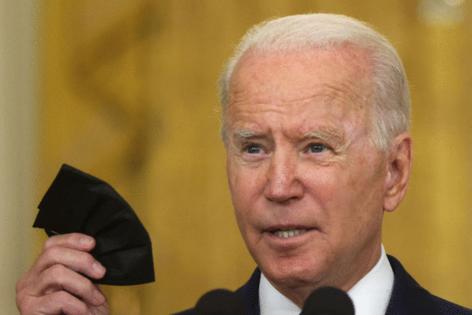Commentary: Health care is not a top issue in 2024. COVID-19 explains why
Published in Health & Fitness
In a striking departure from recent voting and polling trends, health care has tumbled to the 16th most important problem facing Americans today, according to new Gallup data.
At first glance, this shift is bewildering, especially considering the central role health care played in the 2018, 2020 and 2022 election cycles.
Americans now list the nation’s top problems as immigration (28%), the government (20%), the economy in general (12%), inflation (11%), poverty, hunger and homelessness (5%), unifying the country (4%), crime/violence (4%), and so on.
Contrary to what the Gallup poll might suggest, the importance of health care hasn’t diminished. In fact, the scenario is quite the reverse. Health care continues to be a pivotal issue, but its impact now permeates a broader array of societal concerns, redefining what constitutes a “health care issue.”
To grasp this shift, consider the unprecedented health crisis our nation has recently navigated. The COVID-19 pandemic didn’t just challenge our health care system. It reshaped our nation and exacerbated nearly all of its underlying issues. Even with a significant reduction in disease-related fatalities, the pandemic’s imprint on our everyday lives is unmistakably widespread and deep-rooted. Four years filled with upheaval and apprehension have blurred the traditional boundaries between health care and other areas of our lives, from the economy and social relations to our trust in government and other people.
Take, for example, the direct and tangible impact of COVID-19 on our nation’s economy, which is reflected in the concerns ranked third, fourth and fifth in the Gallup survey. The pandemic’s disruption of supply chains, along with the government’s substantial financial relief packages, contributed massively to inflation. Since then, measures taken by the Federal Reserve to tame higher prices have increased interest rates, housing costs and homelessness.
As a result, the cost of health care, which was once viewed as an isolated financial burden, has become intertwined with other economic pressures, including soaring rents, grocery bills and fuel prices. Health care isn’t unimportant. It has simply become another item on a growing list of unaffordable expenses.
The pandemic took a toll not only on our pocketbooks, but also on the nation’s mental health and societal cohesion, too. Forced isolation and the widespread fear of infection sowed seeds of loneliness and distrust, leaving lasting scars on our collective psyche. This period of upheaval intensified perceptions of “the other,” fueling xenophobia and deepening social divides (reflected in first- and ninth-ranked concerns — immigration and race relations, respectively).
Immigration fears, a striking symptom of these anxious times, signal a deeper societal malaise and mistrust that gained momentum during the pandemic. Our shrinking social circles made us wary of engaging with those outside our immediate networks, exacerbating feelings of division.
As economic uncertainties and safety concerns mounted, so too has apprehension about the implications of open borders. What initially emerged as a health precaution — self-isolation — has evolved into a more profound shift in social attitudes, fueling the instinct to safeguard ourselves and our loved ones by keeping strangers out.
...continued
©2024 The Fulcrum. Visit at thefulcrum.us. Distributed by Tribune Content Agency, LLC.







Comments